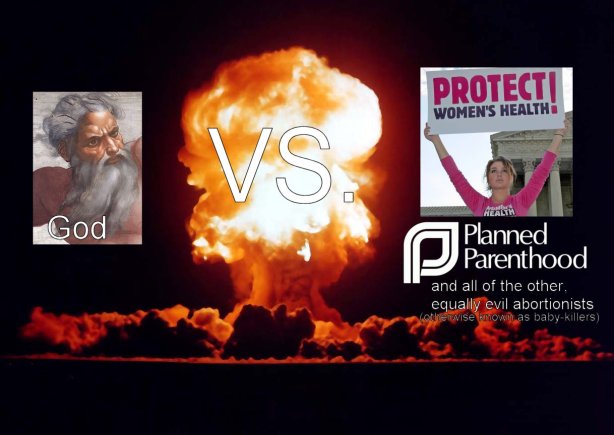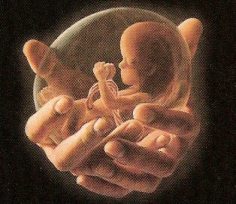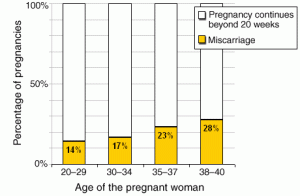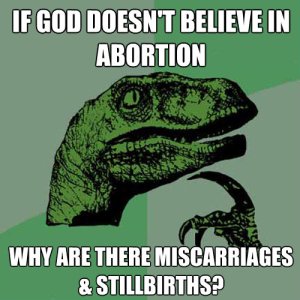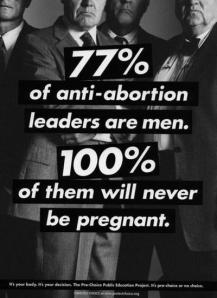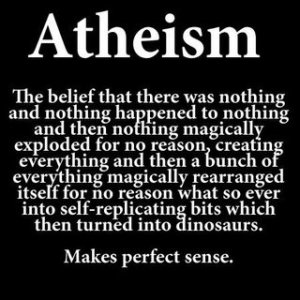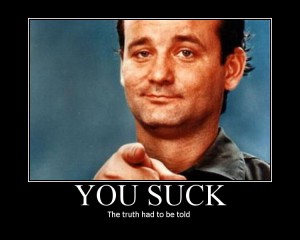Archive
About Me: Atheism
A Few Things First…
I’m writing this post to give some insight into me, the author of this blog, and also to give context to a few posts I’ll (hopefully) be putting up in a few days. I’m currently working on a pretty hefty post, “The Link Between Autism and Atheism” (or something of the kind), and I’m working on a book review of sorts of Heaven Is For Real.
I figured, then, that it would probably give help to have some insight into what atheism means to me and the ways it defines me and informs my views. Initially I was hesitant to do so, only because religion in general, and atheism in particular, can cause some real polarization. I’m all for people being passionate in response to this blog. However, discussion religion is a quick way to start a flame war.
But then, I started to realize that because atheism is a huge part of my identity, it is going to color my opinions in a lot of my posts. The problem is that many people have misconceptions about atheism. I am not deluding myself into thinking I can clear them all up with just this post. But I am hoping to help a little bit.
Nonetheless, I figured it would be interesting and useful to discuss what atheism means to me, dispel some rumors about it (in my context) and just to discuss it openly. After all, people are distrustful of atheists (more people would rather see a muslim as president than an atheist).
I also apologize because this is one of the longer posts of mine and it may not be as interesting to some of you as the other posts. If you’re going to keep reading this blog, and I hope you will, it will help to know more about me.
And About Atheists In General…
As you saw in the link above, 48% of Americans would refuse to vote for an otherwise qualified atheist for president based solely on him being an atheist. The article above called atheists “the most despised minority in America.”
I don’t speak for all atheists (I’ll get to that), but while I recognize us as being despised in general, please do not think that I want your pity or that I would compare the treatment of atheists to racist attitudes toward some ethnic minorities. The fact of the matter is, people don’t like us, but at least you can hide atheism. You cannot hide skin color, you can pretend you’re not an atheist.
Additionally, I want to point out that I do not speak for any atheist other than myself. I think most of them would agree that we just want to live our lives and be accepted for who we are without having to lie or, should we be open about it, be looked down upon. But I cannot even be sure that every atheist would agree with that.
I once considered writing a post about the catch-22 that is organizing atheists. In not having any central organization, we cannot have some spokesperson that speaks for most of us appear on the news to defend us. That is a problem. However, to organize under the banner of atheism is to create a church of atheism, in a sense, and become exactly what so many atheists stand against. Numerous groups of “freethinkers” have arisen, groups of like-minded non-theists, but these groups tend to tarnish our image, even though their intentions are positive.
Also, people like Richard Dawkins do not speak for us. That guy is a gigantic asshole.
Why I’m An Atheist
Whenever the topic of religion comes up, I tend to awkwardly stand off to the side, hoping to avoid bringing attention to myself. Should it come up that I am an atheist, I think the most common question is “why”.
I could bore you with a long, in-depth story of how I lost faith, but that would be a lie. I never had faith to begin with. As a young child my parents were divorced. I have about one memory from when they were married, and it has been the status quo the rest of my life. My father became extremely religious and when I visited him (every other weekend) he would drag me to church. I had a children’s Bible, I heard kid’s stories about Noah and the Whale, David and Goliath. All that stuff. I’d go to Sunday school, and all I can remember is being very confused. They would talk about God’s love, and I just never understood what they meant.
This was not for a lack of trying. I would hear about how people, when praying, could feel God above them. When I was at my dad’s I prayed nightly. At home, I was embarrassed of it (my mother was non-religious, but not at all anti-religious, and so I could not tell you why I was embarrassed) and would hide under my covers, praying to God at night. But every prayer felt unanswered. The presence I was supposed to feel in times of communion with God were marked by a conspicuous absence.
As a kid, nobody tells you that there is such a thing as an atheist. I don’t think any parent wants to consider their actions of imparting religion on their children indoctrination, but it really is. Whether they avoid teaching children alternatives to their chosen religion out of fear that they won’t be a good Christian or out of fear that it will confuse the child, most parents just simply don’t.
This whole time I was a child of intense curiosity. I wanted to know how everything worked. I read endlessly about the sciences. (In fact, until my junior or senior year of high school, the idea of studying Literature in college was downright repulsive to me.) This was the kind of child I was: fascinated by science, obsessed with the inner workings of the universe. My dad got me a subscription to Discover magazine when I was nine, and I would pore over every page of the new issue until the next one came out. I somehow knew basic facts about quarks before I fully understood the atom itself.
I was never exposed to alternatives to Christianity, and it wasn’t until I was in junior high that the concept of atheism was even introduced to me. I don’t even remember how, but I remember that it made sense to me. I often found my science-oriented world-view at odds with the teachings of the church. With my introduction to the idea of atheism, the absence of God in the world around me suddenly made all kinds of sense.
The thing is, when most people ask why you’re an atheist, the exact question is: “Why? What happened?” Believe me when I say that almost every conversation about that had that question tacked on. You see to the theist, as far as I can tell at least, the only reason someone would reject God is if they were pissed at him. People assumed some awful thing had happened and that I would eventually come to my senses.
This is a fallacy, in my case, and also evidence of the difficulty Christians have in accepting atheists. You see, I did not reject God, because he was never truly in my life. Now, there are no doubt some of you who are saying something like “you weren’t listening”, implying that it is my fault.

This picture explains everything: I tried to tune into God and I got Coldplay. That's "what happened".
In a metaphor I’ll use in a coming post, look at each person as having a radio in his head. God exists somewhere, but his communication with us is through radio signals. While Christians are tuned into God and hear Him all around them, something in my head has made it impossible for me to hear Him.
To imply that I rejected God, I would have had to be tuned in to Him in the first place, then have tuned Him out. I firmly believe that the reason is simply some difference in brain chemistry that makes me unable to hear Him in the first place. Again, this will be its own post, so I wouldn’t dwell too much on it.
Either way. That receptiveness to God’s radio signal is faith. I think that some people are fully capable of faith while others, like me, are simply not.
Religion vs. Science
The false dichotomy that is religion vs. science has always been bothersome to me. You’ll note above that I pointed out that the scientific world view appealed to me. I do not want you, however, to make the mistake of thinking I am saying that science was the reason for me not having faith. The reason science fascinated me is because it took a step-by-step, logical and falsifiable approach. Science appealed to me because it just made sense to me.
As I said above, I think some people just do not have faith built in. When you aren’t capable of faith in that way, then the resulting view would be more centered around logic, around empiricism. I accept things that have evidence to support them. This is not inherently anti-religious. I firmly accept that some people can be religious and logical. I am saying that a logical person without the ability to really understand or be faithful is going to have a hard time with religion.
It also brings us to another sub-point.
The thing with science is that it doesn’t have all of the answers. Science is still learning many things. To many people, leaving something unexplained is a flaw. To me, it is merely part of the process. That science has no really good answer (yet) on some things does not mean that they will never find the answer. I am okay with having some questions left unanswered and it does not put me in an existential dilemma. I think this, too, is a main difference between theists and atheists. The fact that some things are don’t have answers doesn’t bother me in the slightest. I don’t need to know every detail of the world around me to exist.
Nonetheless, the reason I have moved more and more toward science is not because I am Godless, but because it explains the world around me in a way that is compatible with the way my mind works. When science makes some new discovery about the universe, I do not simply accept it, but rather read about it, learn, and wait for more evidence to accrue.
I’m Not Anti-Religion Anymore…
I first made public that I was an atheist around the age of fourteen, near the start of high school. Teenagers are, to put it bluntly, pieces of shit. They argue everything. It is not really a stretch of the imagination, then, that I would have gone into an anti-religious fervor from almost the moment I realized I was an atheist.
This continued for years. In fact, I would say that it wasn’t until the past couple years that I really toned down my anti-religious sentiment. I owe someone a particular thanks for this, and she should know exactly who she is.
But one of the reasons I became so anti-religious was because religion was so anti-atheist. You see how people view atheists in that link above. People immediately assumed that I was just pissed at God. I was told that I will “outgrow” atheism, as though it was some teenage rebellion, akin to starting to smoke and ride a motorcycle to piss off your parents.
I got used to being attacked or converted. People would try to prove God was real, argue how stupid my atheism was; the only defense I could think of was to turn it around on them. As a result, I got really good at turning any discussion into an assault on that person’s religion. In more than one case I have made people cry because of how intensely I pressed their beliefs.
I’d like to think now that I am far more even-tempered in my reactions to such things. I don’t bring up atheism as much as I used to because I know it will start these discussions. If something moves in that direction, I let people know that we all have our beliefs (or lack of) and that I’m not going to argue it.
…But Don’t Try To Convert Me
Conversion is inherently wrong, and this is about the toughest and most controversial thing I’ll say in this post. I think that conversion is morally reprehensible in any case in which a person seeksto convert another. Should you be approached about the process of conversion, go for it. But going out and trying to convert someone is wrong. If I tried to convert a Christian away from religion and into atheism, I’d be treated like a terrible person. Yet when a Christian feels it is his/her responsibility to tell me how hard I’m going to burn in hell, I get (understandably) upset.
You have to understand, for me the concept of eternal hellfire isn’t real, and thus not an issue. If I were to approach you, ask what your religion is and, upon hearing you have one, tell you everything you are wrong about, you’d probably get pissed. So why is it, then, that it’s okay to lecture atheists about how wrong we are?
The answer: it’s not. Let people live their lives.
Religion Around Me
Consider how strongly religion influences this country and think how it would feel to have that impressed upon you. The First Amendment says “Congress shall make no law respecting an establishment of religion, or prohibiting the free exercise thereof;” and I would not argue for a moment that Christianity is the state religion, certainly not officially. It may be a very prevalent one, but unlike many atheists, I would never argue that I’m actually persecuted for being an atheist. There is no government system punishing me for doing so. But that does not mean there aren’t difficulties.
People, upon finding out I’m an atheist, have varied reactions. Some ignore it, but are clearly bothered by it. Others try to ask questions. I think my favorite side-effect of atheism is in dating. I have been told outright by some women that they simply cannot date me because they could not marry an atheist. You’d think this would be some kind horror stories from back when people were less open-minded. I’ve been told this by no less than three different women.
Beyond the interpersonal consequences are the social ones. Some of you, some time back, may recall the big to-do made about the phrase “one nation, under god” in the Pledge of Allegiance. In high school my sophomore year I refused to say the Pledge of Allegiance. Granted, this was in a time where I was more activist about my atheism than now, but this is one thing I would still do if it were an issue.

Totally, one hundred percent okay. I should just ignore that religious engraving in front of the courthouse.
For those of you who are no doubt saying that it’s not a big deal, just say it. Consider if the Pledge of Allegiance were to say “one nation, under Zeus” or “one nation, under Satan”. Would you really still stand up and say that? Really? Even though it is fundamentally against what you believe?
Well I didn’t “just go with it” I was told by my teacher that it made students uncomfortable that I wasn’t standing up, at which point—expecting this to be made into a federal case, literally—I told the teacher that I was an atheist and that I would not be made to state that God exists, while in school (even more appropriately, in my chemistry class) when it is fundamentally against what I believe.
Fortunately, she admitted she couldn’t make me, and the issue was dropped. But consider that such occurrences are reasonably common in life as an atheist. My religious, but non-Christian readers can probably understand the difficulty that arises when a nation that is overwhelmingly influenced by Christianity expects that you are the same. No person, of any religion, should ever be forced to just go along with everyone else, despite not being of the same religion. Think back to the news stories about removing those ten commandment tablets from out front of numerous courthouses. There was a media shitstorm, equating to talk about how Christians are oppressed by secular society. If you were offended by that, imagine how I would feel, as an atheist, walking into that courthouse.
Please don’t mistake this as some kind of martyrdom. But it does make life harder when the expectation is that you’re a Christian and you’re not.
Some of you may, again, be telling me I should just smile and nod and let it roll off me. But I challenge you to answer for me why I should have to. Give me one good reason that it is okay for my lack of religion to be treated that way, as some kind of don’t ask, don’t tell policy for atheists.
Conclusion
I remember once at work there was a conversation going on between some coworkers about their churches. One of them asked me what church I went to, at which point I said that I don’t go to church. I chose those words, not wanting to make a scene about it. But I was then promptly asked why not, and what church did I go to when I did practice, etc. I said I was an atheist. The looks on everyone’s face looked more akin to the face you’d see when you found out that I was a cannibal specializing in the torture, murder and consumption of newborns.
There are days where I look back and can completely understand why, even just a few years ago, I would passionately discuss my atheism. I am, to an extent, ashamed that I tiptoe around the subject, instead of being proud to share it when asked. But I have grown so tired of explaining myself to everyone that I’ve found it’s easier to just let everyone assume I’m a good Christian, instead of a godless heathen, unless otherwise asked.
My point this post is not to get sympathy or to paint my life as being full of trials as an atheist. It doesn’t come up on a daily basis. But when it does come up, it is not a good feeling to know that people think less of you for it. I am not a martyr, but I also do not think I should have to hide something that is a fundamental part of my identity because of common misconceptions.
My point is also not to paint Christians, or any theist, as a bad person for being willing to discuss his religion, nor do I think you deserve to be scorned for being proud of it. Religion (or lack thereof) is part of your identity. If at any point my tone conveyed some disrespect for Christians or theists, I apologize. I have spent a good portion of the last year becoming far more tolerant, mostly because I began to understand why people are religious. In the same way that it might be incredibly difficult for a Christian to understand why I’m atheist, I sometimes don’t understand why people are drawn to religion. So if my tone comes off as dismissive, please inform me, as I certainly didn’t mean it that way.
I encourage the open discussion of faith, assuming those discussions are in the spirit of learning, not in the spirit of conversion or condemnation.
My intent here, beyond the previously stated hope to give some context to my atheism, is to maybe impact a couple people to treat atheism with the same respect you would any other major religion. I think this is perhaps the easiest and biggest change anybody could make to the way they act toward atheists. Think of how you would act when you find out someone else is Jewish or Muslim or Taoist or anything: respect the difference in religion and move on.
If you should be interested in learning more about me, more about atheism, or want any clarification you don’t feel comfortable asking publicly via comment, shoot me an email at tenuousconnecionsblog@gmail.com. I am more than happy to talk more about this as long as it is, again, in the spirit of learning.

